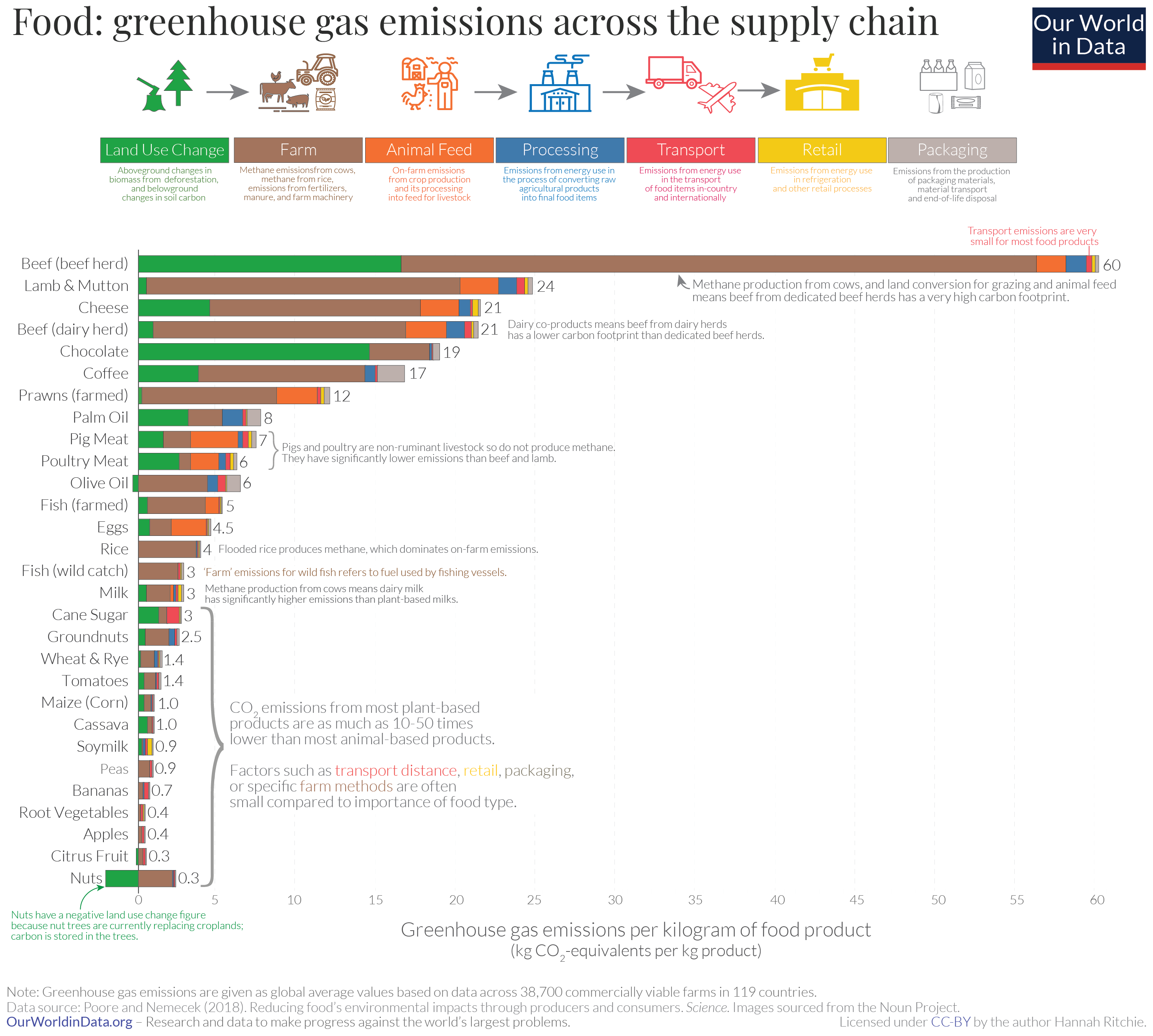MarkS said:
The numbers seem to make it pretty clear how significant transportation is for the environmental impact of the food we eat. Although no numbers are certain, I think those published in Science are probably about as good as we can get.
The Lamb and mutton above is an interesting example of how initial assumptions can change final results. Bearing in mind my example was for lamb reared on marginal land with minimal input. They are left to lamb in fields and most but not all survive. Very low inputs
The green part is debatable as deforestation happened hundreds/ thousands of years ago.
The brown part is for fertiliser and manure which are not used. Farm machinery use is also minimal.
Orange is for animal feed which is non existent.
Take these out and you are left with emissions of around 3. The same as ground nut.
It is also interesting that grassland is assumed to have an impact on global warming due to deforestation/ soil structure change but peas dont.
Like I said it all depends on your initial assumptions.
Don't get me started on food miles. What is a food mile? The way people carry on you'd think transporting 100kg of apples in an old landrover that does 20 mpg is more environmentally friendly than transporting 30,000kg of apples in a lorry that does 5mpg. If my maths is correct the landrover uses 75 times more fuel per kg mile than the lorry.




